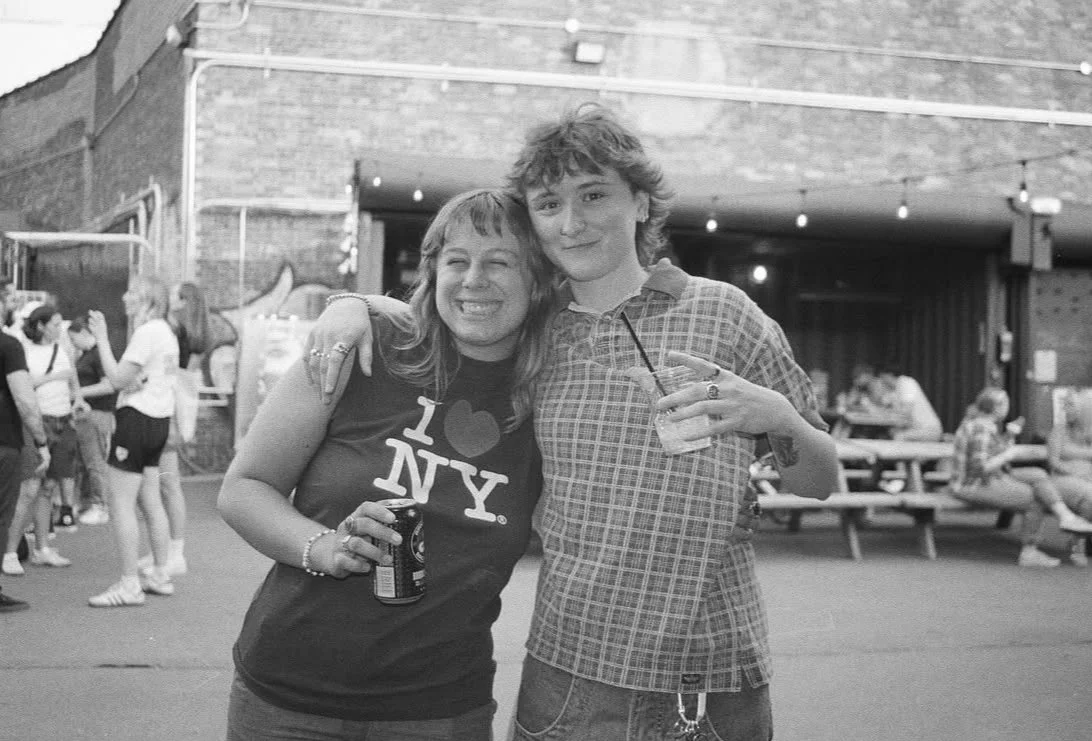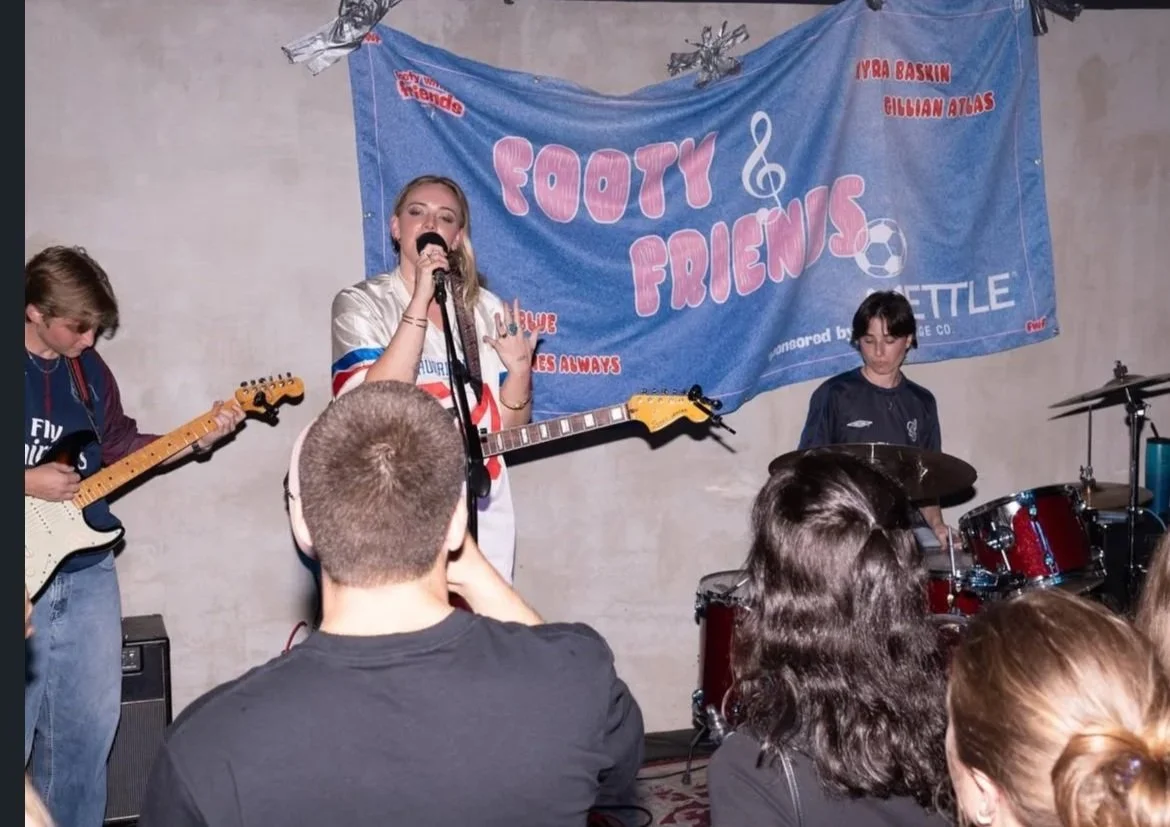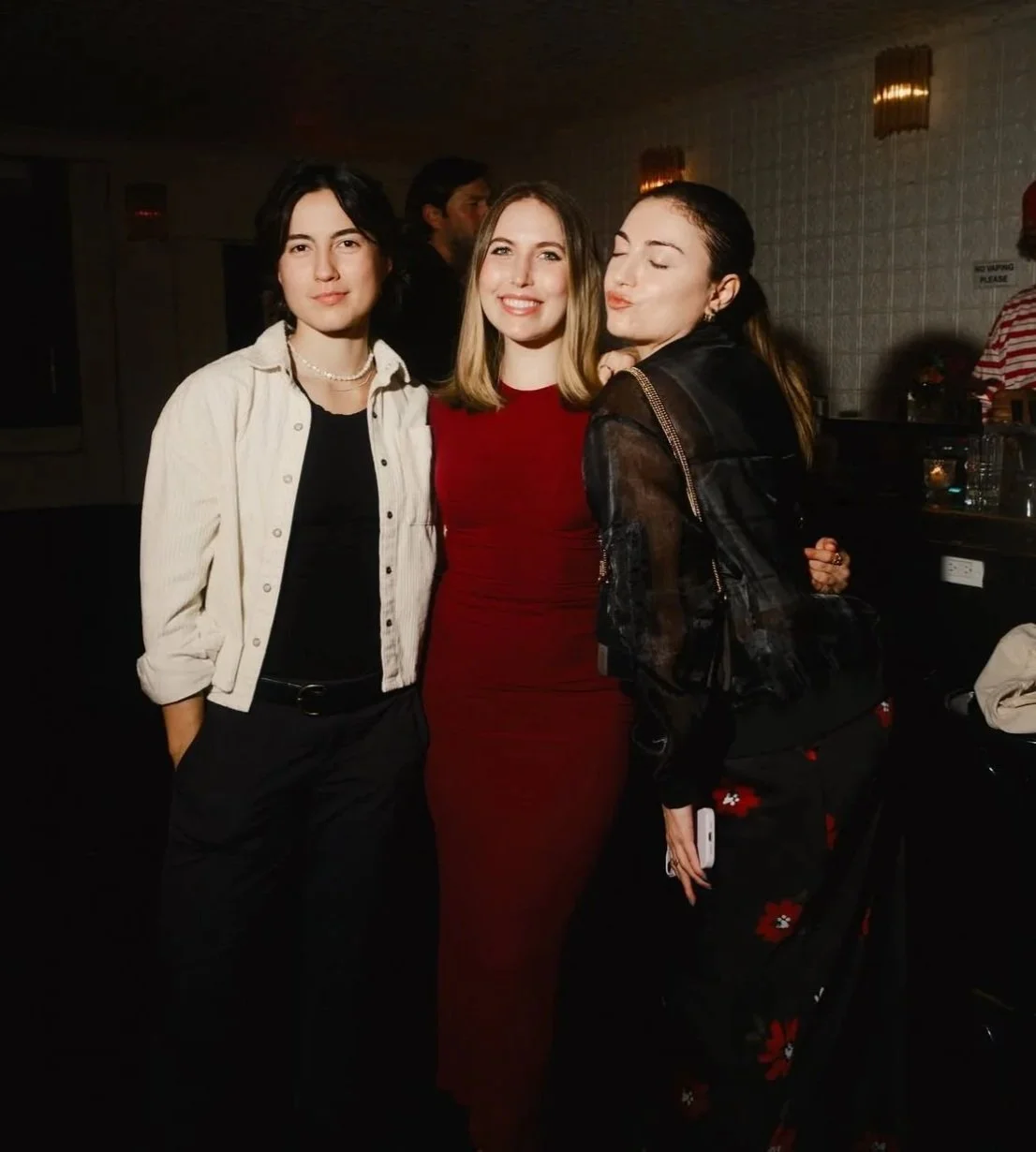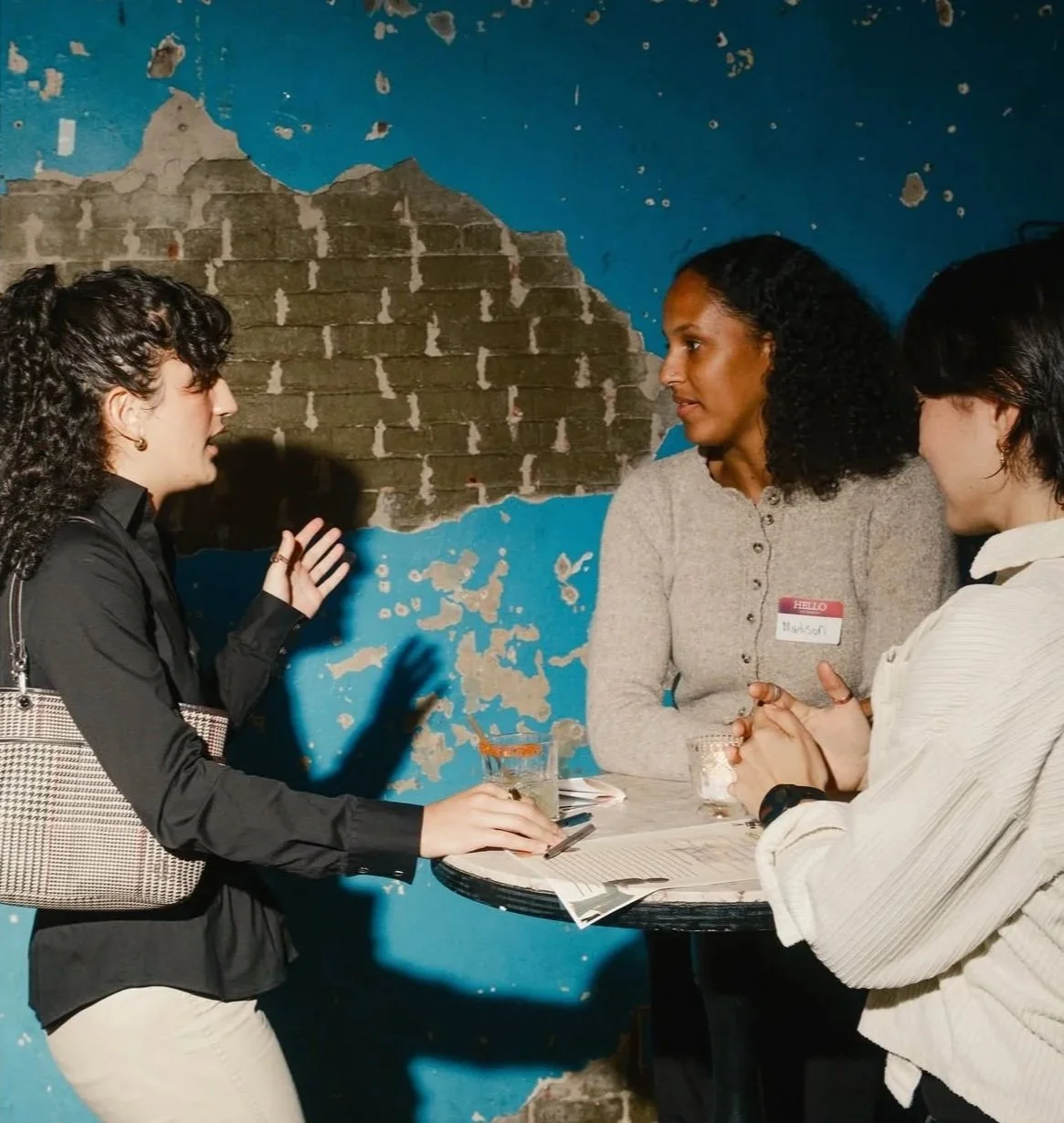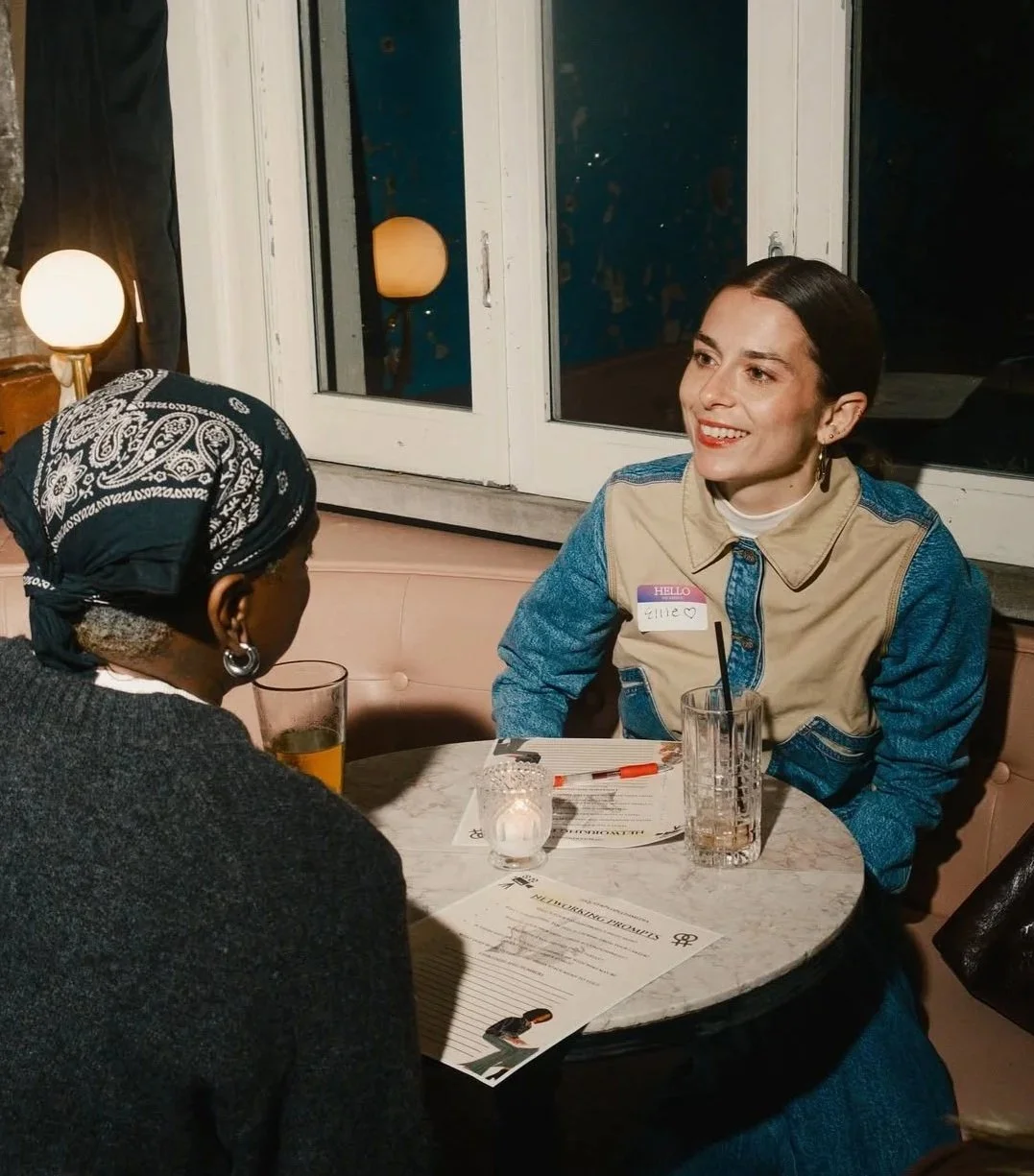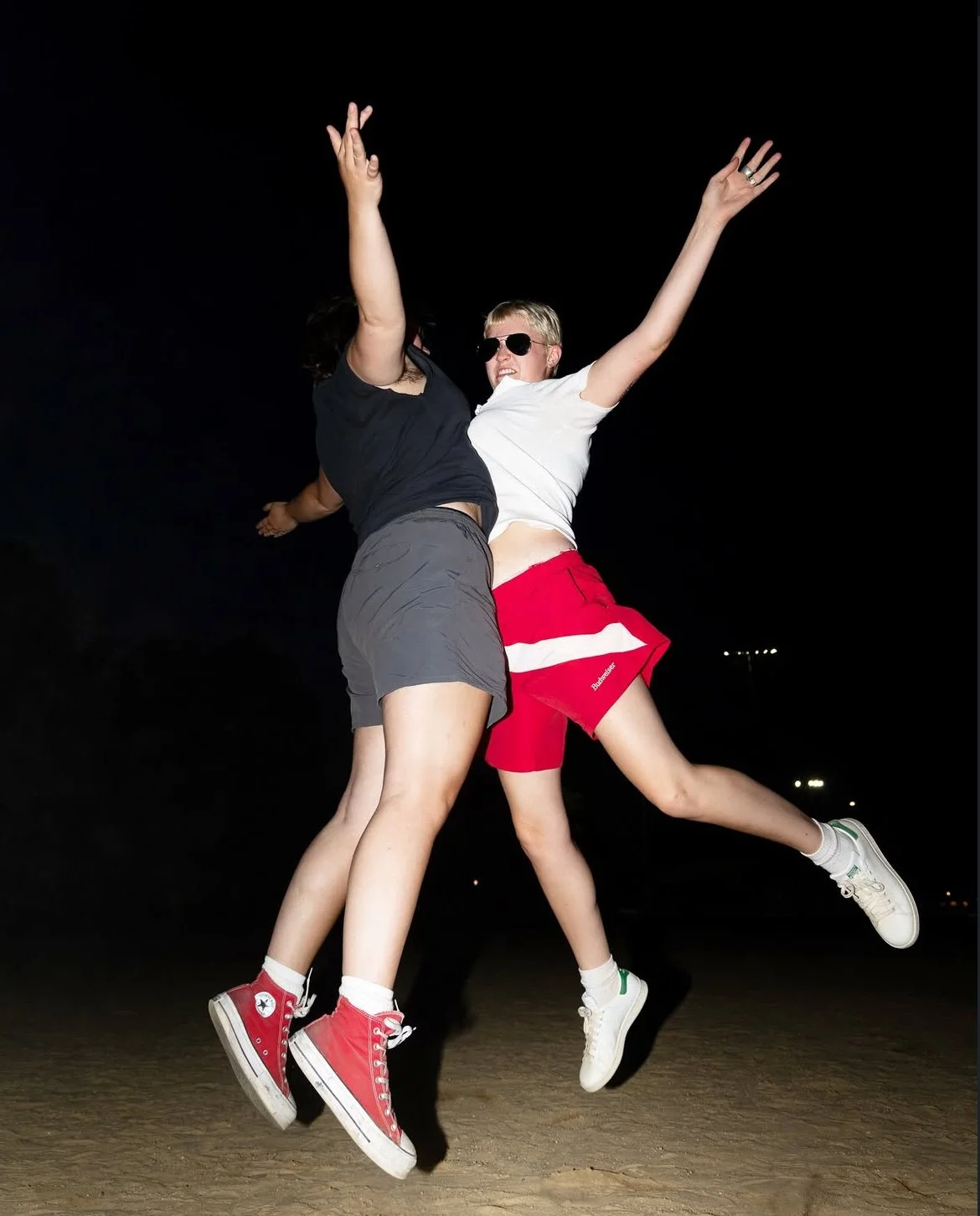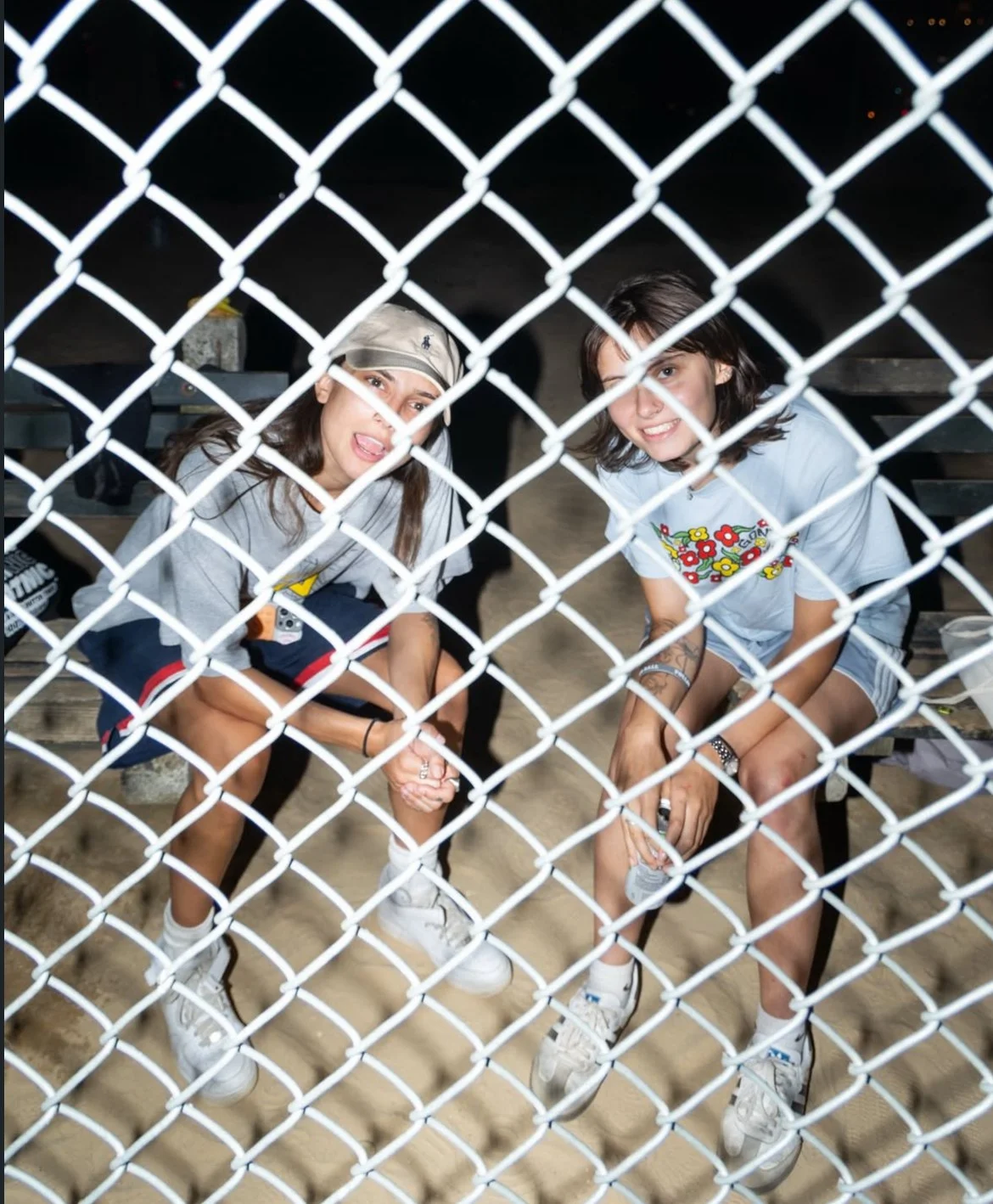The Rise of Sapphic Third Spaces in New York City
“It's so great to see all of the things we wanted for other people [and ourselves] actually coming to life—people are making real friends from our events.”
- Ava Norquist
Source: Gia Gwin
New York City has become the lesbian capital of the world. From The Woods Wednesday to Out & Abt, it is impossible not to run into your ex-girlfriend (and her new girlfriend) at least once a month. While these events are a reflection of the fun and vibrant sapphic scene in the city, it can easily become an overwhelming atmosphere—especially for someone attending alone.
In the current political and social climate, people are desperate to feel community and build relationships that align with their values and interests. Forming part of a group has proven extremely beneficial—and even lifesaving—for queer people. The feeling is intensified when it comes to the sapphic community, since there are not many spaces left catering towards them.
The search for this community has influenced the rise of soft-clubbing and activities that do not revolve around partying. These events aim to foster authentic experiences and genuine connections. They focus on staying present and restraining from overstimulating environments to create a more productive atmosphere.
FOOTY WITH FRIENDS
Source: Gia Gwin
“Recreational activities and third spaces (that aren't clubs or bars) allow for easier friendship making, and socialization with new people—which requires you to be more present and less intoxicated,” Gia Gwin, attendee of Footy With Friends, says.
FOOTY WITH FRIENDS
Source: Gia Gwin
Gen Z and Millennials have reported a drift from drinking and partying, instead focusing their energy on wellness-oriented activities. Over one third of Gen Z does not drink alcohol, while the other 61% disclosed goals for consuming less alcohol this year.
“Party culture hasn’t disappeared; it’s evolving toward wellness, accessibility, and connection. Rising costs and a desire for more intentional experiences are pushing youth into third spaces where community thrives,” shares Future Snoops.
This shift arose from lockdown, when people were forced to find alternative ways of hanging out—including outdoor adventures, fitness classes, and art workshops. Such events help people foster authentic connections and encourage them to embrace their authentic selves.
“I really like how [with the group] we connect on that professional level but then we obviously end up talking about what's going on in all the different facets of our lives,” Carli Rappaport says. “You already have something in common and that’s being queer, being in the media, and being a woman or a non-binary person, so automatically there is something to talk about.”
QUEER PEOPLE IN MEDIA
Source: lexparker
Carli is a video producer for E! News and the co-organizer of Queer People In Media, a group centered on creating networking events for queer women and non-binary people who work in media-related fields.
About a year ago, Carli and her co-host, Madison Headly, attended a traditional media networking event, where another attendee made a mildly homophobic comment about having “three normal cousins and one gay one.” After that, they both knew it was necessary to create an environment that felt safe and welcoming to queer individuals and people of color.
“You know that queer connection that you have with people sometimes, I just didn't feel completely myself being in their space,” Carli says. “ I wanted a space to go to and connect not only on a professional level, but also on a queer level and a human level.”
The main motivation was to create an atmosphere that was not only fun and healthy, but that made you feel like you were furthering your career. In an industry where networking is key, putting yourself out there in this way “is a great way of creating friendships but also creating professional advancement.”
“I also had another gig that came up through someone else in the group. It's really cool that you can get opportunities from people in the group or get connections through connections,” Carli says.
QUEER PEOPLE IN MEDIA
Source: lexparker
Being in a room with other people that share your interests and passions creates an inspiring environment, where people feel comfortable to express their true selves. There is already something to talk about since everyone automatically has something in common. These factors open the floor for genuine connections to flourish in an organic way.
QUEER PEOPLE IN MEDIA
Source: lexparker
From its inception, Queer People In Media has hosted multiple dinner parties, picnics, and even speed networking events. The environment is very inclusive, and Carli makes sure to talk to everyone that attends it. In the future, she is interested in implementing craft nights or activities that require you to use your hands, which helps alleviate stress as you talk with the other attendees.
Ava Norquist and Sophia Keefe shared a similar sentiment when they created Field Day earlier this year. The couple wanted to create a space—for others and themselves—where people could mingle and spend time outdoors.
Ava says they have always wanted the events to allow different sapphic communities to overlap—to create a place for “the people who might want to have more of a daytime, relaxed activity, or for the soccer players who might want to just hang out and have a picnic on the weekend”—a place where “everyone mashed together and got their needs met in a way.”
FIELD DAY
Source: Sophia Keefe
These events aimed to get sapphics outside and moving their bodies without the pressure of competition. It combines elements of physical activity and sports without experience or athleticism needed, creating a relaxed environment where everyone is encouraged to participate. Previously, they have hosted events like kickball, yoga, clothing swaps, and Gay Olympics.
This type of field trip sparks a hunger for knowledge that, in adulthood, feels rare. It can also help a person reconnect with their inner child, better understand feelings, and navigate relationships.
“We also have benefited [from the events], which is obviously the goal. We want everyone else to make friends, but we wanted to expand our community as well,” Sophia says. “We found a really nice group of people that we see consistently at the events and feel comfortable asking to hang out without feeling like ‘oh, it's awkward, we just saw you once at that bar.’ We've had real connections and meaningful conversations.”
As sapphics in New York City, they understand the struggle of meeting someone at a bar and forgetting to ask for their number to plan a later hangout. They understand the importance of creating a friendly and relaxed environment where being present is a priority. They also understand it can be intimidating to attend one of these events alone, but they encourage anyone who is interested to put themselves out there.
“A lot of people get nervous going into these events, so we have tried our best in our group chat to reiterate to people to show up alone. If you are showing up alone, if you’re nervous, show up early and just chat with us,” Sophia says.
FIELD DAY
Source: Sophia Keefe
When you are trying to find your community, it is essential that you try new things and open yourself to new people. Brooke Finegold, the mastermind behind Poetry Is Gay, shares similar advice: find something you are interested in, and go.
“I mean just following this girl on Instagram that rollerblades everyday and has a group of friends that meets every Saturday to rollerblade,” she says. “Or maybe you go to queer line dancing or just try a new hobby and put yourself out there, even if you don't know anybody. Everyone is trying to find their community and their people, you know?”
Poetry Is Gay, a bi-weekly poetry salon hosted at the Brooklyn cafe Boyfriend Co-op, provides a safe space where people are free to create together and draw inspiration from each other.
FIELD DAY
Source: Sophia Keefe
“A salon is kind of a nice way—not centered on drinking, partying, or just seeing a show—of participating in something and being in a community,” Brooke says. “[That is] why I wanted to host a salon—I wanted to have a community-based event with a shared purpose of wanting to write, wanting to explore, and wanting to create.”
Brooke says she has met a lot of her close friends through the salon and seen many lasting friend groups form from the act of writing poetry together. Recurring events like Poetry is Gay create lasting bonds in a way that seems organic.
Sometimes it is about “writing the book you wish you could read” or “creating the space you wish you had.”
“It can be such a big city obviously, so it is very nice to find your niche. It feels very good to find a space where there are other people who are also weird art gay kids who are also looking for weird art gay kids, you know?” Brooke says. “It’s been really sweet to see people find those connections and be a part of creating that community for other people as well as myself.”

